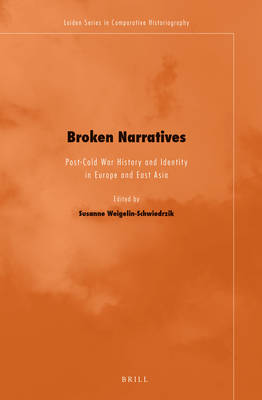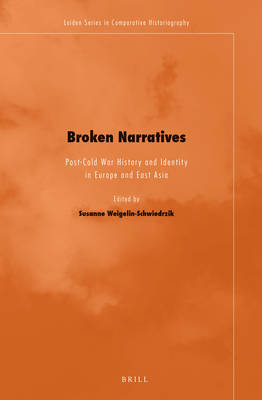
- Afhalen na 1 uur in een winkel met voorraad
- Gratis thuislevering in België vanaf € 30
- Ruim aanbod met 7 miljoen producten
- Afhalen na 1 uur in een winkel met voorraad
- Gratis thuislevering in België vanaf € 30
- Ruim aanbod met 7 miljoen producten
Zoeken
Broken Narratives
Post-Cold War History and Identity in Europe and East Asia
€ 242,95
+ 485 punten
Omschrijving
The end of the Cold War reshuffled the power relations between former friends and enemies. In Broken Narratives the contributors offer an account of the consequences of the end of the Cold War for the (re-)telling of history in film, literature and academic historiography in Europe and East Asia. Despite the post-modern claim that there is no need for a master-narrative, the contributions to this book show that we are in the middle of an intense and difficult search for a common understanding of the past. However, instead of common narratives polyphony and dissonances are produced which reflect a world in a period of transition. As the contributions to this volume show, the year 1989 has generated broken narratives.
Contributors include: Peter Verstraten, Rotem Kowner, Susanne Weigelin-Schwiedrzik, Carsten Schäfer, Martin Gieselmann, Yonson Ahn, Chang Lung-chih, Andrea Riemenschnitter, Shingo Minamizuka, Petra Buchholz, and Tatiana Zhurzhenko.
Contributors include: Peter Verstraten, Rotem Kowner, Susanne Weigelin-Schwiedrzik, Carsten Schäfer, Martin Gieselmann, Yonson Ahn, Chang Lung-chih, Andrea Riemenschnitter, Shingo Minamizuka, Petra Buchholz, and Tatiana Zhurzhenko.
Specificaties
Betrokkenen
- Uitgeverij:
Inhoud
- Aantal bladzijden:
- 272
- Taal:
- Engels
- Reeks:
- Reeksnummer:
- nr. 8
Eigenschappen
- Productcode (EAN):
- 9789004268777
- Verschijningsdatum:
- 12/08/2014
- Uitvoering:
- Hardcover
- Formaat:
- Genaaid
- Afmetingen:
- 160 mm x 239 mm
- Gewicht:
- 539 g

Alleen bij Standaard Boekhandel
+ 485 punten op je klantenkaart van Standaard Boekhandel
Beoordelingen
We publiceren alleen reviews die voldoen aan de voorwaarden voor reviews. Bekijk onze voorwaarden voor reviews.







